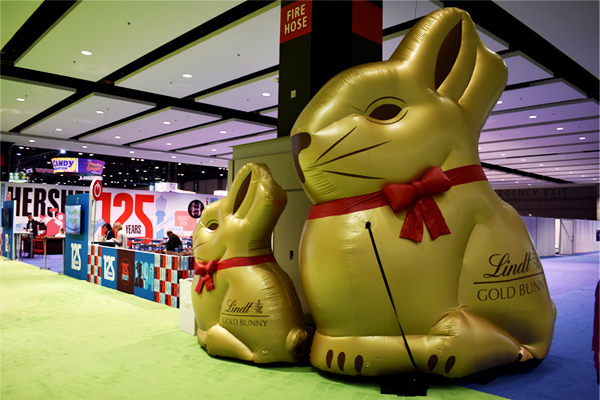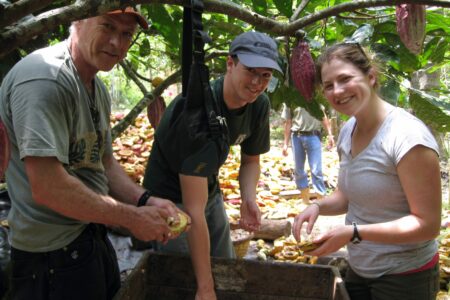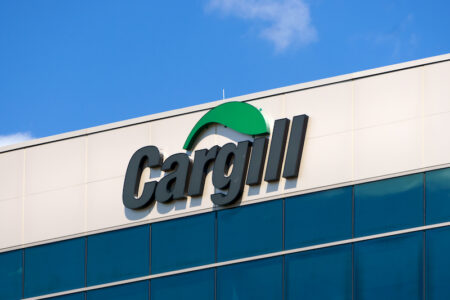Lindt & Sprüngli faces child labour allegations with Swiss TV documentary

Lindt at Sprungli at Sweets & Snacks Expo in Chicago. Pic: Neill Barston
Lindt & Sprüngli has come under the microscope in the wake of a recent Swiss documentary that has alleged child labour has been found in its supply chains within West Africa, writes Neill Barston.
Within the show, which aired at the end of last month on the SRF channel, investigations were focused on Tepa, western Ghana, where it is claimed there were instances of children working on cocoa plantations.
According to the company’s recent sustainability report, it has worked with around 80,000 farmers within the country, and as previously covered, has set out to deliver a clear policy of delivering its confectionery supplies in an ethically sourced manner.
The business is recently said to have outsourced its farming contracting in the region to Swiss raw materials group, ECOM, a prominent cocoa trader operating in the sector.
As the Swiss television show noted, Lindt had introduced measures to prevent child labour in its supply chains, and its own figures are reported to have revealed that of 8,491 surprise visits to farms, 87 child workers were found, though the documentary asserts that the monitoring is insufficient to ensure that the full picture is highlighted.
According to Swissinfo.ch, part of the Swiss broadcasting association, Lindt responded in writing to the recent television programme, noting that systemic factors leading to child labour are very difficult to influence. It further stressed that fighting child labour requires efforts on the part of governments, non-governmental organisations, as well as local institutions and farmers themselves.
Group upturn in results
The issue of child labour emerged shortly after the company released its latest annual results last month, which showed double-digit organic sales growth of +10.3% in 2023.
Its sales increased 4.6% to CHF 5.20 billion, with performance in all regions contributed to the sales growth, particularly in Europe, which showed an upturn of 9.1%, North America showing 11.0% expansion and 12.9% in the rest of the world.
However, the business acknowledged trading challenges, with geopolitical uncertainties and ‘persistently depressed consumer sentiment in many countries,’ as part of a cost of living crisis had impacted on raw materials costs including cocoa, which it admitted had almost doubled in cost within a year, reaching a high on the commodities exchange.
The company’s relative record successes despite a complex trading environment were put down to efficiency and process improvements in its production facilities. As the company noted, its higher operating costs were dealt with through collaborating with its trade partners, as well as passing on costs through price increases.
As the business noted in its annual review of results, growth in tourism resulted in an increase in consumer footfall in the Group’s own stores and in the travel retail business. Its online business has also reported growth for the year. In terms of product development, it said trends in gifting with pralines and hollow figures were also performing well, including the launch of wafer products.



